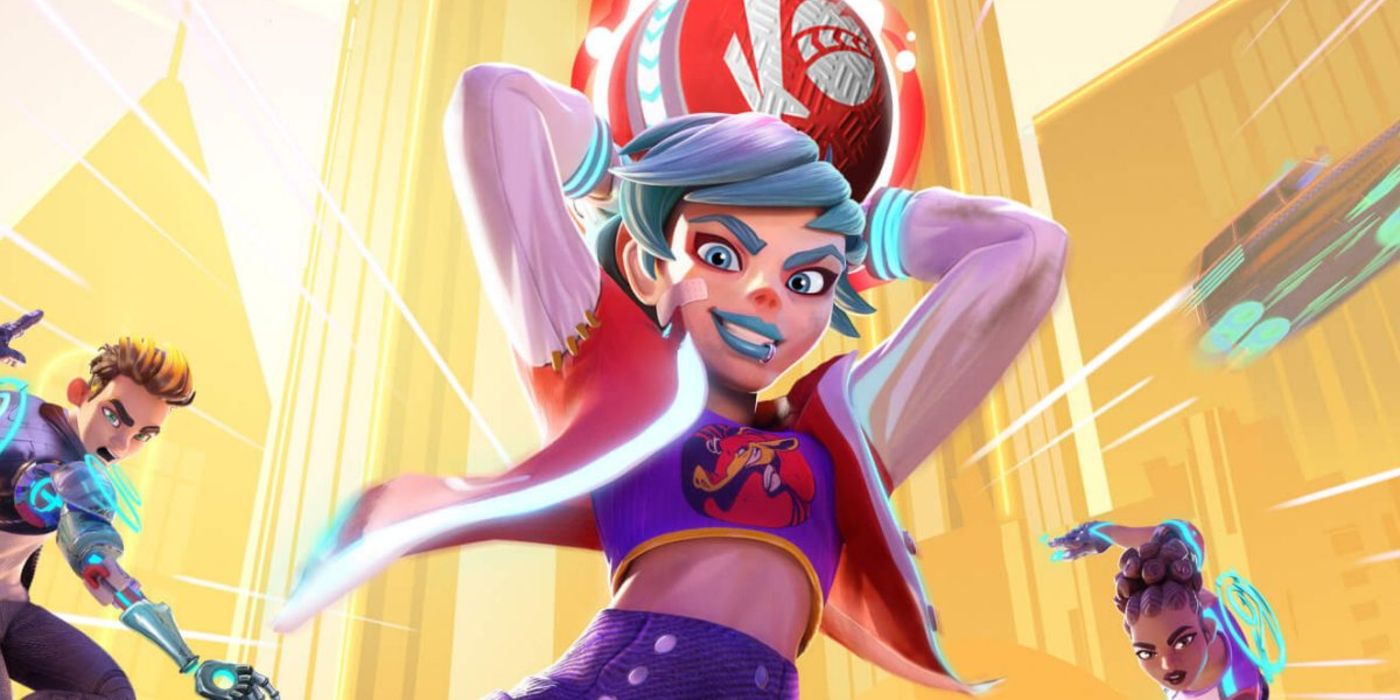
The February 17 Nintendo Direct introduced a number of games coming to the Switch, including first-party titles like Splatoon 3 and third-party games like Square Enix' Project Triangle Strategy. One company with a lot of representation was Electronic Arts, which showcased multiple games including Plants vs. Zombies: Battle for Neighborville and Knockout City, an upcoming competitive team-based brawler by developer Velan Studios that aims to take the schoolyard game of dodgeball to a whole new level.
Following that direct, a closed beta was hosted for Knockout City. It offered access to a 3v3 Team KO mode, with the first side that reaches ten knockouts winning, as well as a training mode. The full version promises more locales, game modes, and other features like forming crews, as well as a ranked scene based on seasonal content. However, just what was available in the beta makes it clear that EA's upcoming title is justified in its seeming esports aspirations.
RELATED: 5 Games That Were Oddly Missing From the Nintendo Direct
On the surface, Knockout City is very simple to pick up. For PC users the default controls are to move with WASD, jump with Space (including a second 'jump' that opens a hang glider for slower, further descents), throw a ball with left click, catch with right, and pass with middle. That's everything strictly necessary to play, and dodgeballs will hone in on opponents so players don't need to have perfect aim. A lot of the fun comes from playing mind games to catch an opponent off-guard, as throws can use different levels of charge that alter speed and catching only works for about a second.
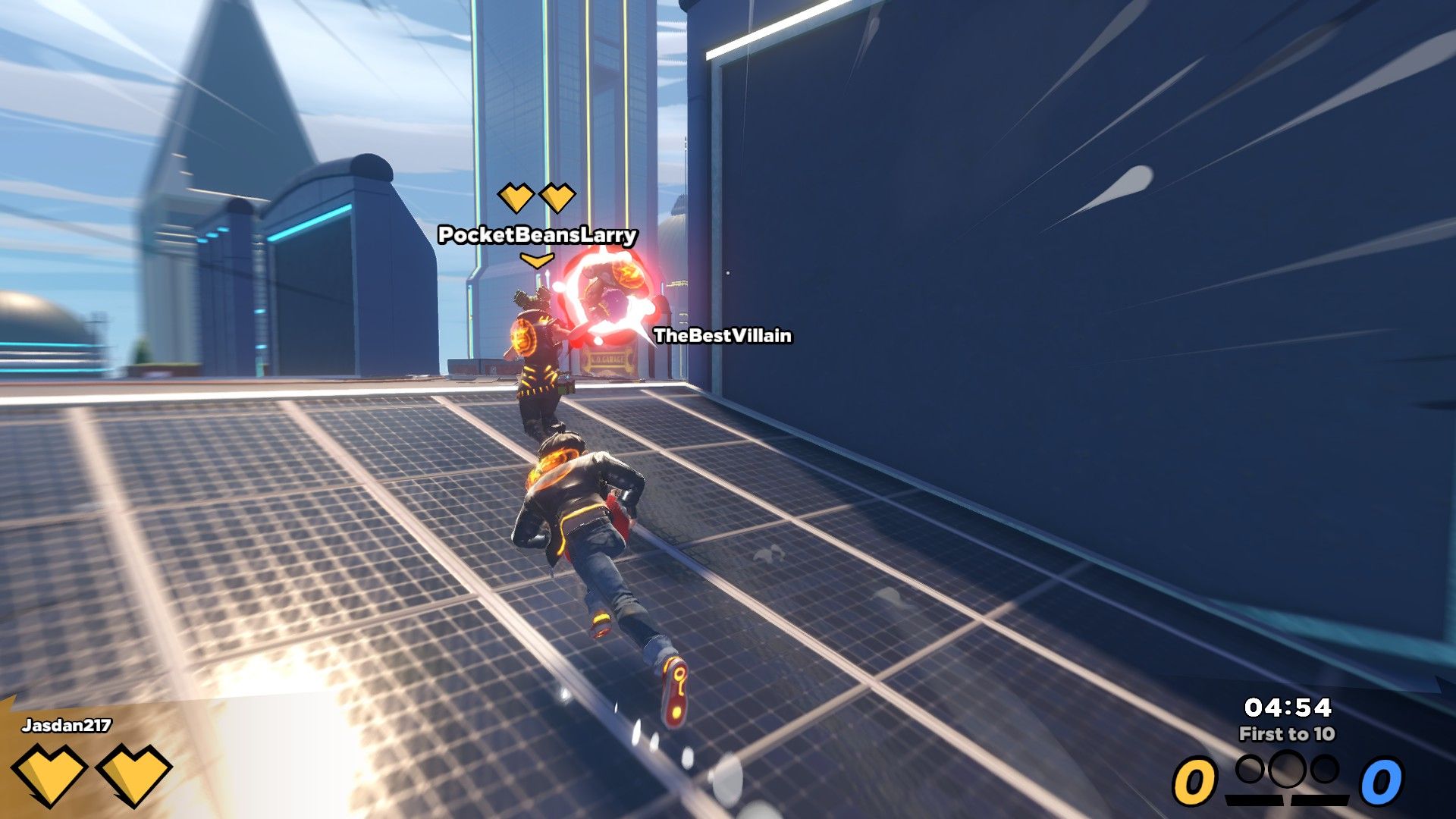
The mind games get more complex from there. Players can flip (Q) or twirl (E), which both offer a little extra mid-air height similar to a double-jump and also change the trajectory of one's dodgeball into a lob or sidewinder, respectively. Players can feign a throw with F by default, and Control activates a sort of dash in any direction that both reflects dodgeballs and knocks anyone it hits off-balance. As a result, one-on-one encounters become games of chicken with dodgeballs getting faster each time they're thrown, and running into a group is immediately chaotic.
However, Knockout City's biggest and most unique trick is letting players curl into a ball Sonic the Hedgehog-style with Alt. Teammates can use one another as dodgeballs, with every hit affecting each of an opponent's two hit points rather than just one. When the holding player fully charging up a teammate, they turn into a mortar shot that allows the curled-up user to try and aim for a nearby spot that catches opponents in an explosion.
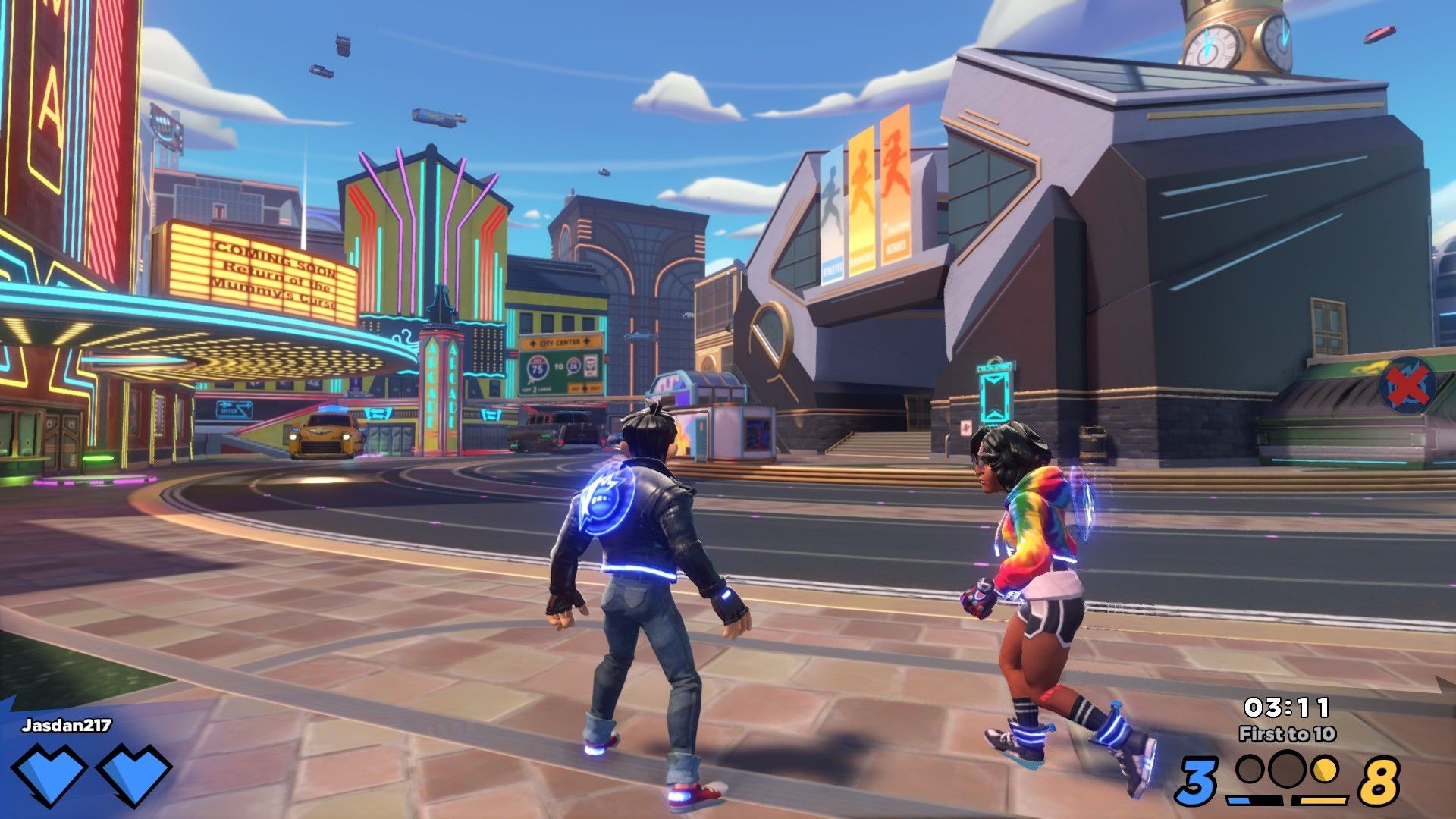
The deeper teamwork aspect of Knockout City is its crowning achievement, and makes it seemingly have potential to be a future esport. While a game like Overwatch encourages diverse team construction because its character roles synergize, there are no ingrained mechanics that make Tank Hero Reinhardt and Damage Hero Tracer unique to pair together, for example. Many team-based games involve individuals trying to combine their disparate abilities to outclass opponents; Knockout City derives its optimal gameplay from teammates using one another as partners and tools of battle.
RELATED: EA Patent May Allow Gamers to Boot New Games Instantly
Knockout City features customization for three character models at a time, but according to the in-game announcer this is entirely cosmetic. For a competitive game, this avoids the pitfalls of Splatoon where min/maxing gear abilities is just as important as style; or Fortnite where some skins have special abilities. A variety of cosmetics, including new intro or victory poses, are guaranteed to be unlocked via earning XP and rising through the nine tiers of Street Ranks, while others can be bought using an in-game currency called Holobux. Fans of most competitive experiences will be familiar with rotating shop supplies and daily XP missions, though at least in the beta there were no microtransactions to get Holobux nor Style Chips - which unlock alternate forms of outfits.
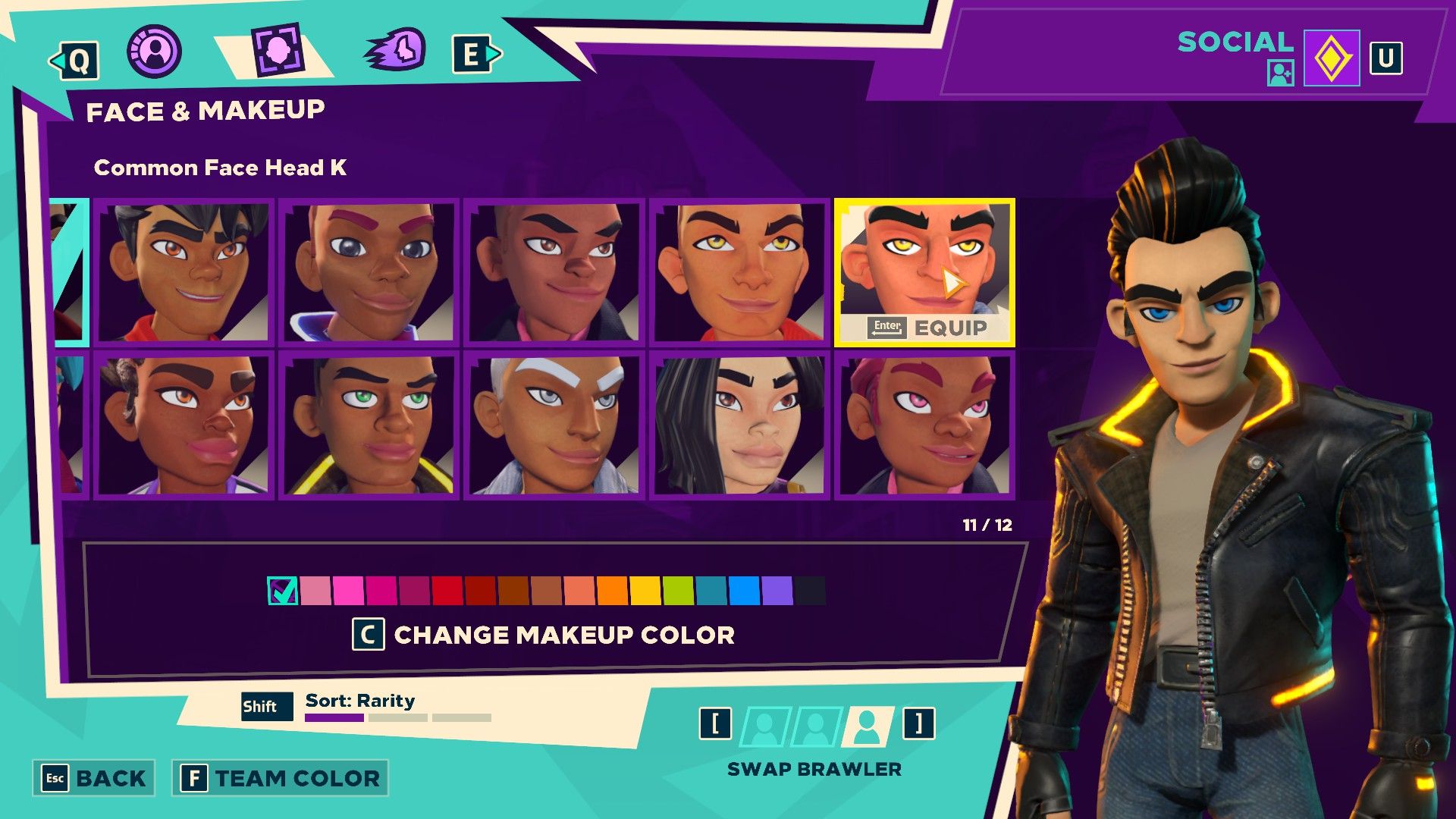
To give credit where it's due, the game's mechanics and cosmetics are accessible to a diverse audience. There are options to remove motion blur or change moves that require holding a button into toggles, for example, and character models can be mixed and matched with male or female-coded cosmetics however one prefers. However, the game's art style and overall presentation is perhaps its most divisive aspect.
Where Splatoon aims to capture the punk vibe of the 90s in a futuristic setting with sea life and GungHo's Ninjala does something similar with ninjas and bubble gum, Knockout City develops an optimistic future using the retro aesthetic of 1950s greaser culture - think Happy Days, but with flying cars and neon rooftop advertising. Its execution is hit-or-miss, namely because that stylistic design choice chafes against a clear intent to utilize the simple design of a title like Fortnite. The game's basic, jazzy soundtrack is also forgettable, with the only high point of its sound design being the visceral, reverberating bounce of each dodgeball against an opponent's face.
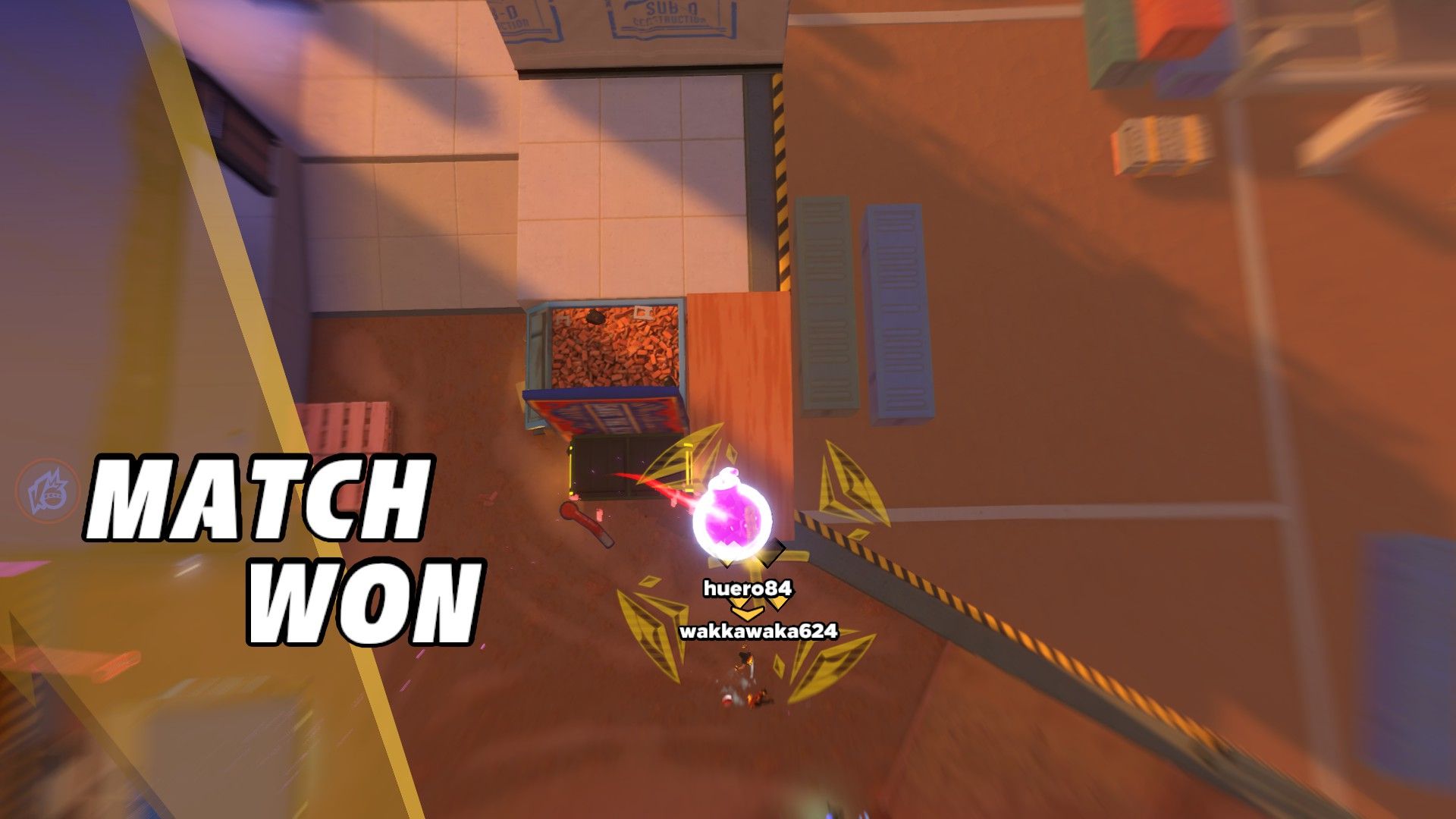
This somewhat lackluster aesthetic is perhaps most noticeable in light of the game's marketing, with the Nintendo Direct advert downplaying the retro-future design in favor of a more unique premise: A mixed-media, character-based battler reminiscent of Disney's Wreck-It Ralph where a pixel art princess, World of Warcraft orc, FPS soldier, and more take part in dodgeball games. Aesthetic taste is subjective, and the 1950s-styled future may work better for some than others, but it's strange the choice was made to advertise the game as something it isn't.
After all, Knockout City shines from its gameplay, regardless of the design around that. Matches are frenetic and encourage direct teamwork in ways not usually seen in competitive esports, with some RNG based on special dodgeballs randomly selected for each game including a Moon Ball that affects the gravity of its user and target, as well as a Cage Ball that locks its target into ball form so they can be thrown helplessly off a ledge. The game will feature crossplay when it releases later this year, and it's certainly something to keep an eye on for friends looking to play together.
Knockout City releases for PC, PS4, Switch, and Xbox One on May 21, 2021, with backward compatibility for PS5 and Xbox Series X/S. Game Rant was provided access to the February beta for this preview.
MORE: Activision Patent Seeks to Improve Esports Footage Sharing For Future Titles

